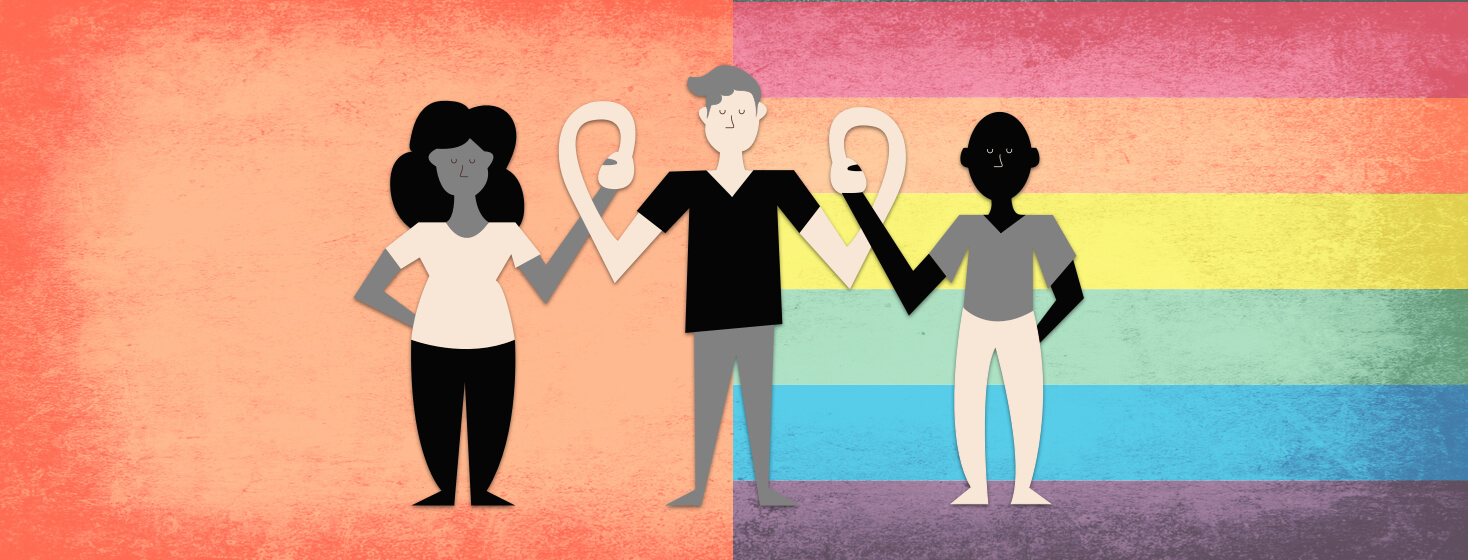Double Minority and Learning from Discomfort
In 2016, under the MS-hashtag on Twitter, I found an invitation for LGBTQ+ individuals to partake in a study. Periklis, the researcher, interviewed LGBTQ+ individuals to study experiences of belonging to minorities. After some contemplation, I wrote to Periklis and told him I wanted to participate. A few weeks later, he interviewed me about my experience living as a gay man with MS. When he asked me why I chose to participate, I said it was an important topic to me. I added, "It must be difficult finding research participants." To my surprise, he chuckled and explained that there had already been considerable interest in the study.
Becoming an MS community advocate
Through an interview featured on this site with Periklis, I contacted this community and became a community advocate. Despite being a common neurological disease, I can forget we are a big group from all walks of life. There is no typical MSer, the same way every single person is unique in their own right. I had yet to find out how we all have struggled on top of MS. My view of the community was, therefore, limited.
Gaining a sense of belonging
The binary nature of minority and majority culture is far beyond my knowledge to talk about at length. But in my experience, it ties closely to self-perception and identity. Depending on the day, I can feel like an MSer. Other days, I feel a stronger sense of belonging to the LGBT-community (but rarely both at the same time). When I experience that belonging, I don't feel like I'm part of a minority. However, when I'm holding myself up against the norm, I can truly feel like an outsider. What interests me is how belonging to minorities has led me to feel the strongest sense of belonging. It's frustrating to think that, to me, "minority" was synonymous with "alienated" and "less capable" before my diagnosis. I thankfully don't feel that way anymore. Because my MS is invisible to strangers, the presumptions of my belonging in this world are anyone's guess.
We need representation to understand the many facets of MS
What I think is important to remember is that without nuanced representation, our understanding becomes limited. When I received my diagnosis, the only people with MS I knew were strangers on the internet and a handful of people in the waiting room at my neurologist's office. Despite having other MS-patients right in front of me, I couldn't believe we had MS in common. The limited and inaccurate representation of chronic illness that I carried with me was understandably not something I was thrilled about. It painted a picture of a life devoid of all the things that give me purpose. But when I engaged with people's stories in the MS-community, I found a wealth of courage, knowledge, creativity, and compassion.
Coming out and MS
If you have read my piece on "Coming out and MS," you know I have struggled with understanding my place in the world. It was my first experience of "losing" my belonging to the majority culture. The representation and diversity of people who spoke about their coming-out experiences made me brave. Ultimately, I stopped seeing belonging as a place in a hierarchy. I had to leave the stereotypes, inaccurate representations, and societal expectations to stop seeing "minority" as "less worthy." If you have read the piece, you also know it took a long time to get there. The best way to summarize that experience would be "long and uncomfortable."
Appreciating my worth
MS, for me, has been challenging for many reasons. By writing these posts, I reflect a lot about the common thread in how MS has changed my life. Belonging, worth, and empathy are concepts central to my experience. The sadness and uncomfortable moments have mostly been temporary. To feel like I sometimes need to negotiate my worth because of my MS can persist. But our worth is not a commodity we trade; it's something inherent to every person. To start feeling like it holds prerequisites invites a lot of pain.
No longer feeling like an outsider
So yes, I belong to a double minority of sorts. Of course, it's still hard to live with MS because of the symptoms and the ways we are sometimes inaccurately represented. But I don't feel like an outsider the same way I used to. To accept all of myself despite the ways MS has changed my life will probably always be uncomfortable. Belonging to the communities constructed around these shared experiences is what, for many of us, brings peace of mind and purpose. I guess my point of view has changed since I participated in that study almost five years ago. I hope that point of view will always become more nuanced and tied to reality.
So here's to more years of learning from discomfort!

Join the conversation